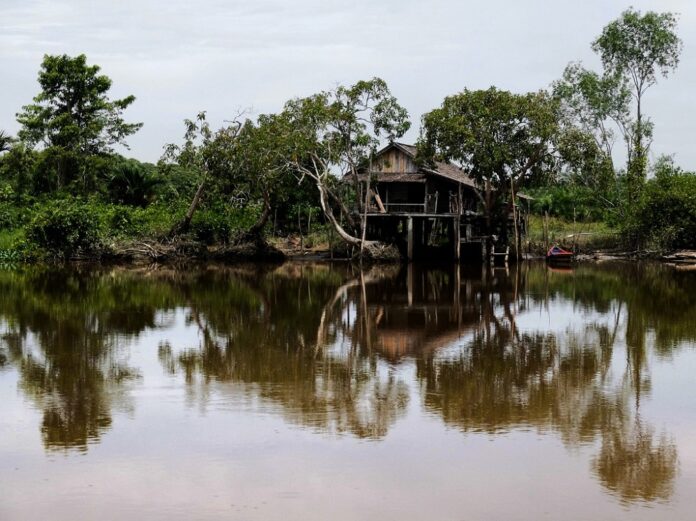A study found that deforestation and global warming in one Indonesian province caused temperatures to rise nearly a whole degree Celsius in 16 years leading to an eight per cent increase in deaths. – AFP pic
NEW YORK, Nov 12 – Deforestation and global warming in one Indonesian province caused temperatures to rise nearly a whole degree Celsius in 16 years leading to an eight per cent increase in deaths, a study found Wednesday.
The report published in the Lancet Planetary Health gives a rare insight into how global warming and deforestation can affect people living in one of the world’s most vulnerable regions.
“Heat from deforestation and climate change is killing workers in tropical forest countries and decreasing the ability to work safely,” lead author Nicholas Wolff of the Nature Conservancy told AFP.
With resources concentrated in developed countries, studies on the affects of global warming on health and mortality have largely focused on the so called global north.
“There’s a real dearth of studies looking at the impacts on those who are most vulnerable to climate change and who are least responsible,” Wolff said.
His team used publicly available data to reveal how the clearing of 4,375 square kilometres (1,690 square miles) of forest in the Berau Regency increased daily maximum temperatures by 0.95?C – on top of already warmer global temperatures – between 2002 and 2018.
Some 17 per cent of Berau lost tree cover and the resulting heat increase made outdoor work conditions unsafe an additional 20 minutes of the day and caused an estimated 104 deaths.
Using climate modelling, the study projects that under a scenario of +3?C of global warming against pre-industrial levels (or +2?C against 2018 levels) deaths could increase by about 260 per year.
‘Different reality’
Wolff’s team used satellite image information to determine how much tree cover was lost in Berau between 2002 and 2018 – years during which overall whether conditions were otherwise relatively stable.
They calculated the subsequent change in daily average temperatures and found nearly a whole degree Celsius of warming had occurred there in 16 years while over the rest of the country they remained relatively stable.
Wolff says that kind of change in such a short period of time is staggering.
“The globe has warmed about a degree so far… over 150 years,” Wolff said referring to warming over pre-industrial levels.
“These forests go in a week or a month and suddenly you’re just living in a completely different reality.”
Researchers used public health data on heat-related mortality from other regions to calculate how many deaths had likely been caused by the additional heat.
But Wolff says that higher temperatures making it unsafe to work outdoors for an increasing part of the day is an equally bleak finding.
“It’s going to affect so much of the larger population,” he said, “People are going to have to make these awful choices about whether to risk their lives to put food on the table.”
Indonesia is home to the world’s third largest rainforest and although deforestation there has slowed markedly since 2015 economic drivers like agriculture, logging and mining mean the trees are still disappearing.
According to Global Forest Watch in 2001 the country had 93.8 million hectares (230 million acres) of primary forest – ancient forests which have largely not been disturbed by human activity – an area about the size of Egypt.
By 2020, that area had decreased by about 10 percent.
Wolff says that the forests act as “natural air conditioners” – a finding that should be considered hopeful.
“They are probably the best bet for adapting to climate change for these countries,” he said, adding that re-growing deforested areas was an important option.
“An even more important option is to keep what’s left.” – ETX Studio


